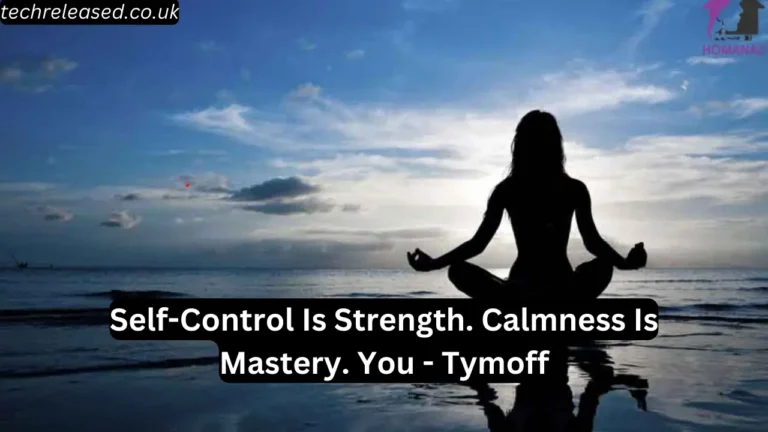In the fast-paced world we live in, it’s easy to get caught up in the hustle for more—more success, more possessions, and more recognition. This constant chase often blinds us to the value of what we already possess. The phrase “love what you have, before life teaches you to lov – tymoff” serves as a powerful reminder to cherish our current blessings before life’s inevitable challenges force us to see their true worth. This blog explores the profound wisdom behind this quote, offering insights and actionable advice on embracing gratitude and contentment in our daily lives.
The essence of appreciating what we have lies in understanding the transient nature of life. Everything we hold dear, be it relationships, health, or material possessions, is subject to change. By cultivating a mindset of gratitude, we not only enhance our present happiness but also build resilience against future adversities. Let’s delve deeper into how embracing this philosophy can transform our lives, backed by research, examples, and practical tips.
Understanding the Essence of Gratitude
Gratitude is more than just a fleeting feeling; it’s a deliberate practice of recognizing and appreciating the positives in our lives. Studies have shown that regularly practicing gratitude can lead to improved mental health, stronger relationships, and greater overall well-being. By focusing on what we have rather than what we lack, we shift our perspective from scarcity to abundance. This is at the heart of “love what you have, before life teaches you to lov – tymoff.”
For instance, a study conducted by the University of California found that individuals who kept a weekly gratitude journal reported higher levels of optimism and life satisfaction. This simple act of writing down things we are thankful for can significantly impact our mental state, making us more resilient to stress and negativity.
In addition, gratitude has been linked to better physical health. Research indicates that grateful individuals experience fewer aches and pains, better sleep quality, and stronger immune systems. By fostering a grateful mindset, we not only improve our mental and emotional well-being but also enhance our physical health, creating a holistic approach to a happier life.
The Impact of Gratitude on Relationships
One of the most profound areas where gratitude makes a difference is in our relationships. When we express appreciation for our loved ones, it strengthens our bond and fosters a deeper connection. Acknowledging the small acts of kindness and support from friends and family can enhance mutual respect and understanding.
Research from the Greater Good Science Center at UC Berkeley suggests that couples who regularly express gratitude towards each other have stronger, more satisfying relationships. This practice creates a positive feedback loop, where appreciation begets more acts of kindness, leading to a happier, more harmonious relationship dynamic.
Furthermore, gratitude can improve workplace relationships. Employees who feel appreciated by their colleagues and superiors are more likely to be engaged, productive, and committed to their jobs. A culture of gratitude in the workplace can lead to higher job satisfaction, lower turnover rates, and a more positive organizational atmosphere.
Embracing Contentment in a Materialistic World
In a society driven by consumerism, the pursuit of material wealth often overshadows the pursuit of genuine happiness. The philosophy of “love what you have, before life teaches you to lov – tymoff” encourages us to find joy in simplicity and contentment in the present moment. It’s about recognizing that true happiness doesn’t come from acquiring more, but from appreciating what we already have.
For example, minimalist lifestyles have gained popularity as people seek to declutter their lives and focus on what truly matters. By reducing excess and focusing on essentials, individuals report greater freedom, reduced stress, and increased satisfaction. This shift in mindset aligns perfectly with the principle of valuing what we have before life forces us to realize its importance.
Additionally, practicing gratitude can help combat the negative effects of social comparison. In the age of social media, it’s easy to fall into the trap of comparing our lives to the curated highlights of others. By focusing on our own blessings and achievements, we can reduce feelings of inadequacy and foster a greater sense of self-worth.
Practical Ways to Cultivate Gratitude
Cultivating gratitude is an ongoing process that requires conscious effort. Here are some practical steps to help integrate gratitude into your daily life:
- Keep a Gratitude Journal: Spend a few minutes each day writing down things you are thankful for. This practice helps reinforce positive thinking and keeps you focused on the good aspects of your life.
- Express Appreciation: Take time to thank the people around you for their support and kindness. A simple thank you can go a long way in strengthening your relationships and making others feel valued.
- Mindfulness Meditation: Practicing mindfulness helps you stay present and appreciate the moment. It reduces stress and enhances your ability to find joy in everyday experiences.
- Acts of Kindness: Engage in small acts of kindness towards others. Helping someone else can boost your own sense of gratitude and happiness.
- Reflect on Challenges Overcome: Take time to reflect on past challenges and how you overcame them. This can help you appreciate your strength and resilience, reinforcing a positive outlook on future challenges.
- Gratitude Rituals: Incorporate gratitude into your daily routines, such as expressing thanks before meals or at the end of the day. These rituals can help make gratitude a consistent part of your life.
Read Also: It Is Not Wisdom But Authority That Makes A Law. T – Tymoff
The Role of Adversity in Teaching Appreciation
Life’s challenges often serve as harsh reminders of the value of what we have. Adversity, while difficult, can teach us to appreciate our blessings more deeply. For instance, recovering from an illness can make us more grateful for our health, and overcoming financial difficulties can help us value financial stability.
Victor Frankl, a Holocaust survivor and psychiatrist, highlighted this in his book “Man’s Search for Meaning.” He observed that even in the direst of circumstances, individuals who could find meaning and gratitude in their lives were more resilient and better equipped to handle their hardships. This aligns closely with the idea that we should “love what you have, before life teaches you to lov – tymoff.”
Moreover, stories of individuals who have faced significant adversity often highlight a newfound appreciation for life. Whether it’s a survivor of a natural disaster or someone who has triumphed over personal tragedy, their experiences underscore the importance of cherishing every moment and being grateful for the seemingly mundane aspects of life.
Balancing Ambition and Contentment
Ambition and contentment are not mutually exclusive. While it’s essential to strive for growth and improvement, it’s equally important to appreciate the journey and the milestones achieved along the way. Balancing ambition with gratitude ensures that our pursuit of success does not overshadow our ability to enjoy the present.
For example, setting realistic goals and celebrating small victories can help maintain this balance. Recognizing each step forward, no matter how small, reinforces a sense of progress and fulfillment, reducing the perpetual feeling of insufficiency. This balance is a practical application of “love what you have, before life teaches you to lov – tymoff.”
In addition, practicing gratitude can prevent burnout. When we acknowledge and appreciate our efforts and accomplishments, we create a positive feedback loop that sustains motivation and prevents the exhaustion that often accompanies relentless ambition. This balanced approach promotes long-term success and well-being.
Conclusion
“Love what you have, before life teaches you to lov – tymoff” encapsulates a timeless truth about human happiness and fulfillment. By practicing gratitude and contentment, we can transform our perspective, enrich our relationships, and enhance our overall well-being. Embracing this philosophy doesn’t mean abandoning our ambitions; instead, it means finding joy in the present while we work towards our future goals.
Life is fleeting, and its unpredictable nature means that what we take for granted today may not be there tomorrow. By loving what we have now, we not only cultivate a happier, more content life but also build resilience against the inevitable changes that lie ahead. So, take a moment to reflect on your blessings, express your gratitude, and cherish the present—before life teaches you the hard way.
FAQs
Q1: How can I start practicing gratitude in my daily life?
A: Start by keeping a gratitude journal, expressing appreciation to those around you, and practicing mindfulness meditation. These small steps can help you focus on the positives and cultivate a habit of gratitude.
Q2: Can gratitude improve my mental health?
A: Yes, numerous studies have shown that practicing gratitude can lead to improved mental health, including reduced stress, increased optimism, and greater life satisfaction.
Q3: How does gratitude impact relationships?
A: Gratitude strengthens relationships by fostering mutual respect and appreciation. Expressing thanks to your loved ones can enhance your bond and create a positive feedback loop of kindness and support.
Q4: Is it possible to be content and ambitious at the same time?
A: Absolutely. Balancing ambition with gratitude allows you to strive for growth while appreciating the present. Celebrate small victories and set realistic goals to maintain this balance.
Q5: How can I teach my children to appreciate what they have?
A: Model gratitude in your own behavior, involve them in acts of kindness, and encourage them to keep a gratitude journal. Teaching children to focus on the positives helps instill a lifelong habit of appreciation.
Q6: Can adversity really teach us to appreciate what we have?
A: Yes, experiencing hardship often makes us more grateful for our blessings. Adversity can serve as a powerful reminder of the value of health, relationships, and stability.
Q7: What are some common obstacles to practicing gratitude?
A: Common obstacles include focusing on what we lack, comparing ourselves to others, and getting caught up in daily stress. Overcoming these requires a conscious effort to shift our perspective and focus on the positives.
Q8: Are there any tools or apps that can help me practice gratitude?
A: Yes, there are several apps designed to help you practice gratitude, such as Gratitude Journal, Happify, and Reflectly. These apps offer daily prompts and reminders to reflect on your blessings.




